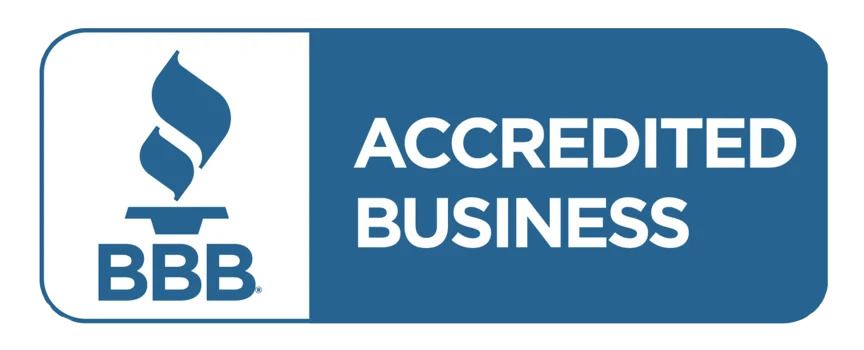Your home’s HVAC system plays a pivotal role in maintaining a comfortable living environment. One often-overlooked aspect is the drain line responsible for removing condensation from your system. Over time, HVAC drain line clogs can develop, leading to significant problems, including poor system efficiency, increased energy usage, and water damage. At Honest Air, your trustworthy HVAC Contractor, we want to educate you on identifying, addressing, and preventing these clogs to ensure your HVAC system runs smoothly.
Understanding HVAC Drain Line Problems
The HVAC drain line, also known as the condensate line, is vital in funneling away moisture generated during the cooling process. However, this line can become a breeding ground for mold, algae, and other debris, leading to blockages. Ignoring these clogs can result in HVAC drain line problems such as water leakage, musty odors, and even system failure due to water backing up into the unit.
When the drain line is clogged, you might notice symptoms like water pooling around the interior unit, strange noises from the HVAC system, or an increase in indoor humidity levels. Recognizing these signs early can prevent minor problems from escalating into costly repairs.
How to Unclog HVAC Drain Lines
Unclogging an HVAC drain line isn’t overly complex, but it requires attention to detail and patience. Here’s a systematic approach to how to unclog HVAC drains:
1. Turn Off the HVAC System: Prioritize safety by shutting off power to your system. This prevents accidental electrical issues while you work on the drain line.
2. Locate the Drain Line: The drain line typically runs from the indoor unit to an exterior outlet. Identifying both ends is crucial for effective cleaning.
3. Clear the Exterior Drain Outlet: Sometimes, simply clearing the exterior outlet can alleviate minor clogs. Use a wet/dry vacuum to suction out debris and accumulated water.
4. Access the Indoor Drain Line: Remove the PVC cap or unscrew the fitting to access the indoor section of the drain line.
5. Use a Stiff Brush: Insert a stiff brush into the line to dislodge buildup. Be gentle to avoid damaging the pipe.
6. Flush the Line: Pour a mixture of warm water and vinegar through the drain line. This helps dissolve any remaining debris and inhibits mold growth.
7. Vacuum the Line: Using a wet/dry vacuum, create a seal around the indoor drain pipe and vacuum out the obstruction. This step can be repeated until the line is clear.
Regular HVAC drain line maintenance, such as monthly flushing with vinegar, can minimize the chances of clogs forming in the future.
The Importance of HVAC Drain Line Cleaning
Routine HVAC drain line cleaning plays a crucial role in the health and efficiency of your system. Consistent cleaning helps in preventing HVAC drain clogs by removing organic material, dirt, and mildew that can accumulate over time.
A well-maintained drain line also contributes to better indoor air quality. Blockages can cause moisture to linger, creating a humid environment conducive to mold growth. Regular cleaning curtails these issues, ensuring a healthier living space.
Employing a professional HVAC company for regular maintenance ensures thorough cleaning and inspection of your system. Experienced technicians can pinpoint potential problems before they become severe, saving you from costly HVAC water damage repairs down the line.
Preventing Future HVAC Drain Line Clogs
Proactive steps can prevent clogs, preserving system efficiency and extending its lifespan. Here are some tips for preventing HVAC drain clogs:
1. Install a Condensate Trap: A condensate trap helps prevent debris from entering the drain line, which is particularly useful in areas prone to dust and dirt.
2. Regular Filter Changes: Clean air filters are vital. Dirty filters can cause dust and particles to settle in the drain line, leading to clogs.
3. Maintain Proper Sloping: Ensure that the drain line slopes downward towards the exit point. This facilitates unimpeded water flow, reducing the likelihood of standing water.
4. Schedule Professional Inspections: Bi-annual inspections from an HVAC company like Honest Air can preempt problems. Skilled technicians can clean evaporator coils and check for any emerging leaks or blockages.
Combating HVAC Water Damage
Failure to address HVAC drain line issues timely can result in water damage, affecting not just your HVAC system but also your property. This can lead to costly HVAC water damage repairs like replacing soaked drywall, carpet, or repairing structural elements weakened by water exposure.
Preventative maintenance, prompt clog resolution, and professional check-ups are key to mitigating such risks.
At Honest Air, our mission is to provide our clients with top-notch services that ensure their HVAC systems are performing optimally. Our experts are ready to assist with both routine maintenance and urgent repairs, helping you avoid the pitfalls of neglected HVAC drain line problems.
Spotting the warning signs early and implementing regular cleaning routines can save you from future headaches and expenses. Don’t let small issues affect your comfort; maintain your system diligently for peace of mind.
For professional assistance, feel free to reach out to us at Honest Air. Request a Free Quote today, and let our experienced team ensure your HVAC system remains in prime condition year-round. Your comfort is our priority, and we’re here to safeguard it with our expert services.


